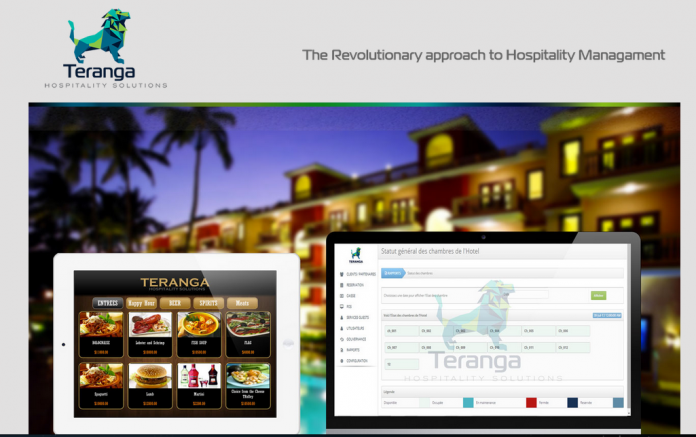(A column highlighting scientific, technological, engineering and design innovation in Africa)
Teranga Hospitality Solutions is a suite of software and mobile applications created by Senegalese brothers Alioune and Moustapha Ndoye to address concerns in Africa’s multibillion-dollar hospitality industry, such as increasing staff productivity, lowering the cost of production, increasing guest satisfaction and ultimately getting more revenues.
To date, the suite comprises four applications: Teranga Concierge, a tablet-based in-room service that attends to guest needs, such as ordering room service, requesting an item or scheduling a service offered by the hotel; Teranga Menu, a mobile/tablet-based app that provides information, including photos and videos, on the hotel restaurant’s menu; Teranga Signature, available on IOS and Android devices, which provides an array of hotel information and interactive services, such a real-time booking and marketing campaigns; and Teranga Lobby, a multilingual self check-in/check-out kiosk, including room-key activation, as well as information and visuals of the hotel, local attractions and businesses.
Teranga, which means “hospitality” in the Senegalese language, Wolof, was launched by Xtreme Design and Engineering, the technology company started in the United States by the Ndoye brothers while they were pursuing engineering studies there. The brothers relocated the company to Dakar, the Senegalese capital, in 2012, when they returned home upon completion of their studies.
According to the brothers, Teranga Hospitality Solutions was created with two goals in mind: To help hospitality professionals run their operations more efficiently, thereby increasing revenues and to give guests an unprecedented hotel experience.
Teranga Hospitality is applicable to all types of properties, from small bed-and-breakfast facilities to large hotel chains, and already has been adopted by hotels in Benin and Senegal.
Persuading local operators to embrace the technology is a challenge. Many locals are investing in the hospitality sector as economic growth fuels demand for hotel rooms. Of the hundreds of hotels under construction across the continent, many are being developed by local entrepreneurs.
The United Nations World Tourism Organization reports that Africa in 2012 saw approximately 52 million international tourist arrivals, up six percent from 2011, and US$34 billion in revenue from tourism, up 2.8 percent in the same period.
“[The local market needs] to see it as an investment that will bring added value and not just extra expense to be cool,” Moustapha says. “Hotels are used to running their systems manually. For you to convince them that this is bringing them value, it takes time. You have to educate them, run some demos and let them have a feel of it.”
The Ndoye brothers are looking to raise US$1.5 million to fund rollout and marketing in Senegal, Kenya, Nigeria, Ivory Coast and South Africa.













